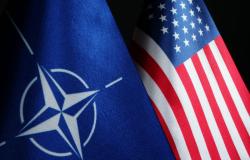The Impact of Trade Liberalization on Poverty
Most economists argue that increasing international trade contributes to economic growth and therefore to the alleviation of poverty. Beyond basic questions and theoretical costs and benefits, however, the relationship between trade and poverty becomes considerably more complicated. Even in the most successful cases, the impact of increased trade depends heavily on the condition of existing institutions, public investments in education and infrastructure, the presence of safety nets, and the impact of the world economy. The video and report for this event is now available online.
Overview
Conference Agenda
Session I:
The Basic Links between Trade, Growth, and Poverty
This session reviewed current research on the links between trade, growth, and poverty. The panel provided different perspectives on these questions and will include voices from both emerging market and least developed countries. This session also assessed what current research can and cannot tell us about the impact of trade on poverty.
Chair:
Kent Hughes, Director, Program on Science, Technology, America
and the Global Economy, Woodrow Wilson Center
Speakers:
Neil McCulloch, Senior Poverty Economist, World Bank Group, Indonesia
Presentation by Neil McCulloch
Ann Harrison, Professor of Agricultural and Resource Economics,
University of California, Berkeley
Globalization and Poverty by Ann Harrison
Presentation by Ann Harrison
Commentator:
Bruce Stokes, Trade and International Economics Correspondent,
The National Journal
Will CAFTA Help Central America's Poor? by Bruce Stokes
Session II:
How the Poor Respond to Opportunity and Adversity
This panel set the stage for discussion in Sessions III and IV by exploring how poor households respond to trade-related opportunities and challenges such as drops in prices or increases in competition. What conditions affect the poor's ability to take advantage of opportunities created by trade liberalization such as increased exports or a shift from subsistence to marketable crops? Because the poor are not a homogeneous population, the panel explored how the impact of trade, coping strategies, and policies varies from one group of poor to another.
Chair:
Borany Penh, Political Economist, Poverty Analysis and Social Safety Net Team, United States Agency for International Development
Panelists:
Thomas Hertel, Professor, Purdue University and Visiting Scholar,
World Bank Group
Poverty Impacts of a WTO Agreement: Synthesis and Overview by Thomas Hertel and Alan Winters
Presentation by Thomas Hertel
William Masters, Professor of Agricultural Economics, Purdue University
Trade and Poverty in Rural Africa by William Masters
Presentation by William Masters
Commentator:
Caren Grown, Poverty Reduction and Economic Governance Team,
International Center for Research on Women
Luncheon Keynote Speaker:
Sebastian Mallaby, Editorial Writer and Columnist, The Washington Post
Session III:
The Contrasting Country Experiences
Panel members used country studies to understand how complementary investments (education, roads, health, etc.) and policies (effective administration, competitive exchange rates) have influenced the impact of trade liberalization on poverty in Africa, Asia, Latin America and elsewhere.
Chair:
William Krist, Senior Policy Scholar, Woodrow Wilson Center
Panelists:
Theodore Antwi-Asare, Professor, University of Ghana at Legon
Globalization, Employment and Poverty in Ghana by Theodore Antwi-Asare
Debapriya Bhattacharya, Executive Director, Centre for Policy Dialogue,
Bangladesh, and Visiting Fulbright Fellow, Center for Global Development
Rebeca Grynspan, Director,
United Nations Economic Commission for Latin America and the Caribbean
Presentation by Rebeca Grynspan
Rosario Guzman, Executive Director,
IBON Foundation, Philippines
Commentator:
Aseema Sinha, Assistant Professor, University of Wisconsin-Madison and
Fellow, Woodrow Wilson Center
Session IV:
Challenges for Policymakers
Policymakers in USAID, international financial institutions, and national legislators must apply the lessons drawn from models, statistical analysis, and case studies to current trade negotiations. If, for instance, the Doha Round opened up markets in specific commodities (say cotton, rice, or sugar) how might specific countries respond? What complementary policies, say investments in port facilities or sanitary inspections, would make a difference? How important are improved health and education? Could investments in better roads, the development of an agricultural extension service, and risk limited micro-finance open opportunities for small farmers?
Chair:
John Sewell, Senior Scholar, Woodrow Wilson Center
Panelists:
Ruth Jacoby, Director-General for Development Cooperation,
Ministry for Foreign Affairs, Sweden
Gawain Kripke, Senior Policy Advisor, Oxfam America
Kamal Malhotra, Senior Advisor on Inclusive Globalisation,
United Nations Development Program
Walter North, Senior Deputy Assistant Administrator, Bureau for Asia and
the Near East, United States Agency for International Development
Support for this conference was generously provided by:
and
3M Company
Documents & Downloads
- The Impact of Trade Liberalization on PovertyDownload
- The Impact of Trade Liberalization on PovertyDownload
- The Impact of Trade Liberalization on PovertyDownload
- The Impact of Trade Liberalization on PovertyDownload
- The Impact of Trade Liberalization on PovertyDownload
- The Impact of Trade Liberalization on PovertyDownload
- The Impact of Trade Liberalization on PovertyDownload
- The Impact of Trade Liberalization on PovertyDownload
- The Impact of Trade Liberalization on PovertyDownload
- The Impact of Trade Liberalization on PovertyDownload
- The Impact of Trade Liberalization on PovertyDownload
- The Impact of Trade Liberalization on PovertyDownload
Hosted By

Africa Program
The Africa Program works to address the most critical issues facing Africa and US-Africa relations, build mutually beneficial US-Africa relations, and enhance knowledge and understanding about Africa in the United States. The Program achieves its mission through in-depth research and analyses, public discussion, working groups, and briefings that bring together policymakers, practitioners, and subject matter experts to analyze and offer practical options for tackling key challenges in Africa and in US-Africa relations. Read more
Thank you for your interest in this event. Please send any feedback or questions to our Events staff.










